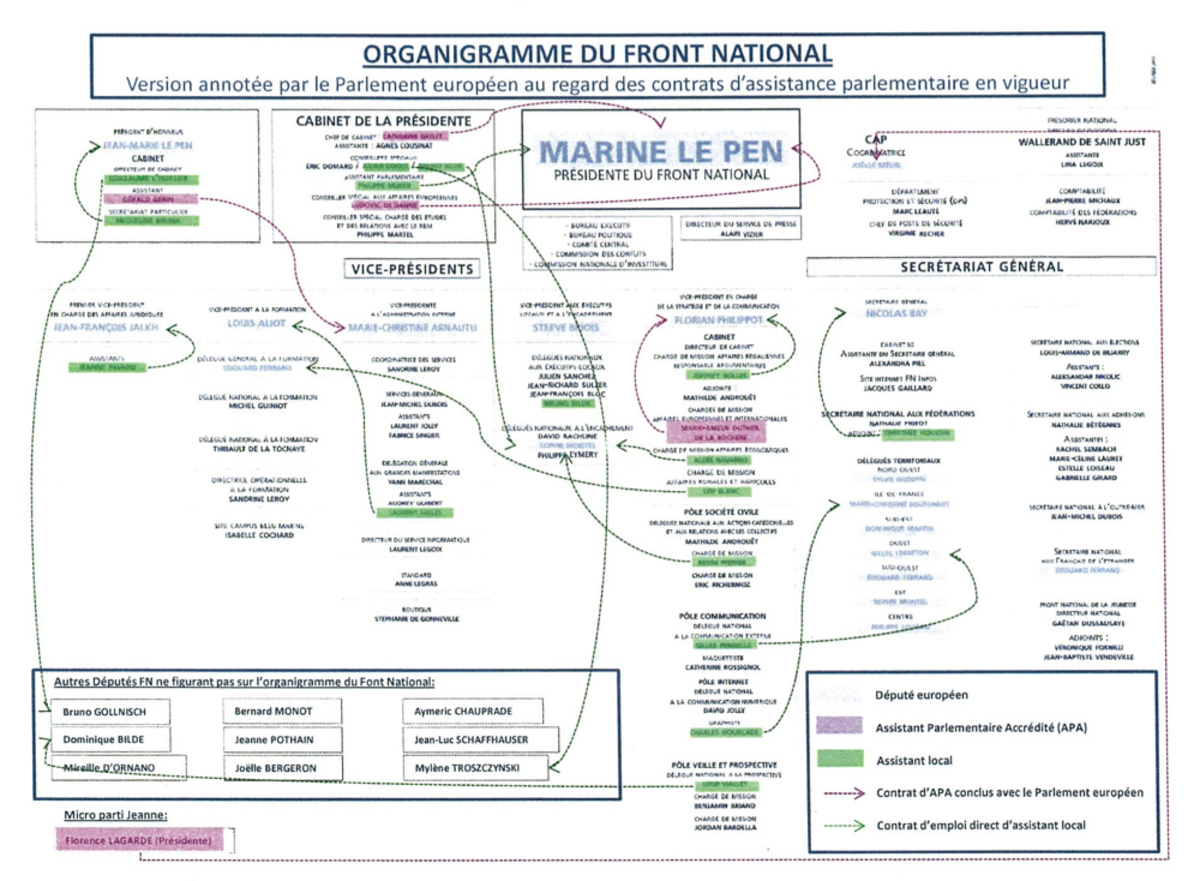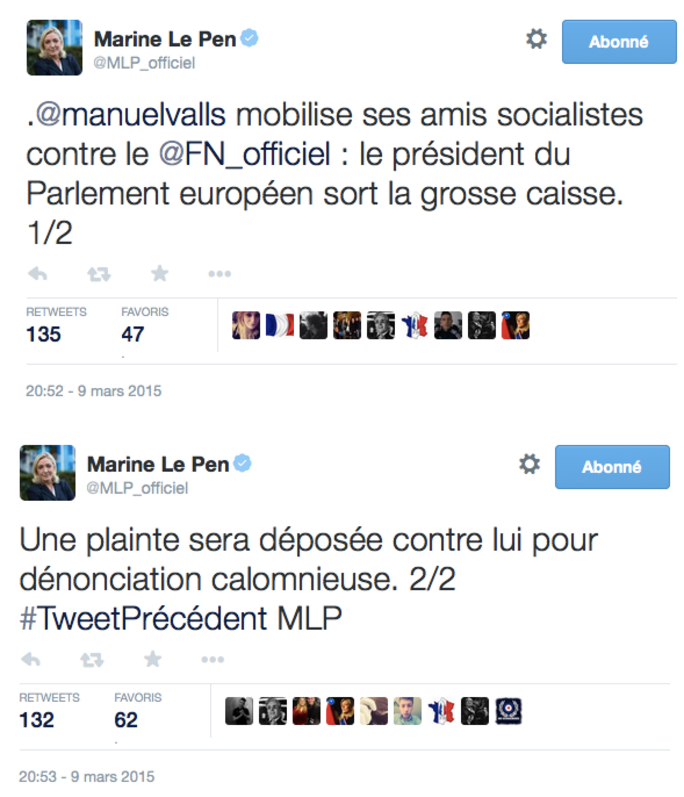The European Parliament this week contacted the French justice authorities to warn of “a possible fraudulent use of European funds” by the French far-right Front National party concerning the payment of 20 of its parliamentary assistants.
Mediapart has gained access to a letter sent by European Parliament president Martin Schulz to French justice minister Christiane Taubira on Monday, in which he writes: “Given the sensitivity and scale of the observations that concern a leading French political party, as well as a large delegation of French Members of the European Parliament, I believe it is my duty to inform you directly,” wrote Schulze. “Given the possible non-respect of the terms of the law regulating financial transparency in political activity, I wanted also to assure you that I pledge to pass on to the competent French authorities all documents that will enable verification of whether the use of public European money doesn’t contravene French laws”.
A statement issued by the European Parliament on Monday evening said that Schulze, a German Social Democrat, had contacted the European anti-fraud office OLAF over the matter.
The controversy comes less than two weeks before local elections are to be held across France in which the Front National, notably campaigning on anti-immigration and anti-European Union policies, is tipped by some opinion surveys to emerge as the leading party. In a television interview on Sunday, France’s socialist Prime Minister Manuel Valls warned that the surge in support for the Front National could see its leader Marine Le Pen win presidential elections due in 2017.
Le Pen, who sits in the European Parliament alongside her father Jean-Marie Le Pen, the party’s founder, announced in a Tweet posted on Monday evening that she intended to launch a lawsuit against Schulze for “calumny”. Meanwhile, in a separate Twitter post yesterday evening, the party's vice-president, Florian Philippot, wrote: "After all, Schultz [sic] is right...Our assistants don't work for the European Union, but against it".
In his letter to Taubira, Schulz pledged to hand over to OLAF all documents in his possession concerning “a possible fraudulent use of European funds, in the case of salaries paid to assistants which does not compensate effective work for the [European] Parliament and which could be the undue financing of the activities of a political party”.
The European Parliament consulted a Front National organization chart published on February 19th and which lists 82 staff positions. It compared these with the list of the Front National’s Members of the European Parliament (MEPs) and their assistants. Of the 82 party members listed on the organization chart, 16 are MEPs and 20 are MEPs’ assistants.
The remuneration of assistants by the European Parliament is strictly regulated, and the parliament’s internal rules make clear that payment of assistants “cannot serve, directly or indirectly, for the financing of contracts established with the Parliament’s political groups or political parties”.

Enlargement : Illustration 1

But according to the parliament’s investigation, the employment contracts of 19 Front National assistants give the party’s national headquarters in the west Paris suburb of Nanterre as their place of work. In his letter, Schulz noted that the employment contracts for ten of these assistants were different “to every degree” with the job description on the party’s organization chart, and that “some assistants do not work for the member of parliament to whom they are bound by an employment contract”.
Schulz’s staff detailed the cost of the 20 Front National assistants, paid out of European public funds by the parliament, as 1,150,000 euros per year and which, Schulze underlined, “would represent 7,500,000 euros for the total current parliamentary term”.
The European Parliament provides each of its 751 elected members a maximum monthly total of 21,000 euros for payment of assistants. A section of these are based in the parliament’s offices in the eastern French city of Strasbourg and the Belgian capital Brussels, while others are employed by MEPs to work within their local constituency. The majority of the 20 Front National parliamentary assistants targeted by Schulz are in the latter category.

Enlargement : Illustration 2

During the last European elections, held in May 2014, the Front National won 23 constituencies. For the party’s 23 elected MEPs, 42 parliamentary assistants were recruited, with the official brief of working on European issues. Mediapart subsequently reported (see here) on how the far-right, anti-Europe party engaged more of its officials as MEPs, and MEPs’ assistants, than any other French political party sitting in the European Parliament, giving it a significant financial boost.
During the previous parliamentary term, Front National vice-presidents Louis Aliot and Florian Philippot were employed by the party’s leader and MEP, Marine Le Pen, as her own parliamentary assistants. Both Aliot and Philippot served as campaign managers to Le Pen during the French presidential elections in 2012, and also as the party’s spokesmen during the national legislative elections that followed immediately afterwards. In 2013, Mediapart revealed that as a result, the European Parliament’s financial department questioned Le Pen over the confusion of roles, and notably about the position of Aliot, who is also Le Pen’s partner, who since 2011 was paid a monthly gross salary of more than 5,000 euros as her part-time assistant.
The matter was finally dropped by the parliament after no clear infringement was found of the regulations concerning assistants based in constituencies. In response to Mediapart’s revelations of the incident, Le Pen insisted that “no situation of conflict of interests exists” in the employment contracts for her parliamentary assistants.
-------------------------
- The French version of this article can be found here.
English version by Graham Tearse


